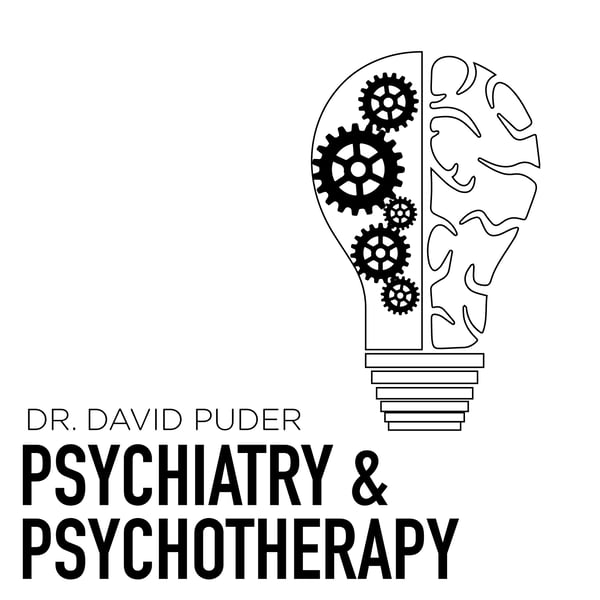The science behind forgiveness and how it affects our mental health
Psychiatry & Psychotherapy Podcast
David J Puder
4.8 • 1.3K Ratings
🗓️ 11 April 2019
⏱️ 43 minutes
🧾️ Download transcript
Summary
On this week’s episode of the podcast, I talk about the power of forgiveness. It’s scientifically proven that forgiveness can impact our health. As mental health professionals, this has important impacts both personally and professionally. I have also included a downloadable PDF for you to give your patients to help you walk them through the act of forgiving.
As a therapist, when I say the word “forgiveness,” my patients can shut down if I don’t explain it properly. Why? Because just the need for forgiveness is proof that they have been wronged. When we are wronged, it can be hard to let go of that hurt. That’s why I wanted to start out by saying what forgiveness (and this episode) is not about.
Forgiveness is not:
It is not approving.
It is not excusing the action, denying it, or overlooking it.
It is not just moving on (particularly not with cold indifference).
It is not forgetting or pretending it did not occur.
It is not justifying or letting go of possibly needed justice.
It is not calming down.
It is not a bargain or negotiation.
It is more than ceasing to be angry.
It is more than being neutral towards the other.
It is more than making oneself feel good.
It is one step towards reconciliation, but it is different from reconciliation, which requires a sincere apology from all parties.
It is not dependent on the one you forgive—that would give the other power to control you by keeping you in your bitterness. Consider Corrie Ten Boom, who forgave the Nazis after losing her family in the Holocaust, or Marietta Jaeger who, after her daughter was kidnapped and brutally murdered, was able to forgive. People can forgive, even when the person who wronged them is unknown or dead.
It is not a one time event, but may need to be repeated (sometimes the hurt comes back, sometimes you need to start every morning with forgiveness).
It is not a restoration of full trust (trust takes time to develop or to be reinstated).
For full article go: here
For resource library: go here
Link to sign up for CME go: here
Member Login to do CME activity go: here
Instagram: dr.davidpuder
Twitter: @DavidPuder
Facebook: DrDavidPuder
Transcript
Click on a timestamp to play from that location
| 0:00.0 | Hello and welcome to the Psychiatry and Psychotherapy podcast, with over 32,000 mental |
| 0:14.2 | professionals listening in every episode. |
| 0:17.2 | Why? |
| 0:18.2 | Because we need to stick together to survive the mental health field. |
| 0:20.8 | I'm here to talk about getting rid of burnout, increasing job satisfaction, and feeling |
| 0:25.5 | like an expert in what you do. |
| 0:30.7 | Okay, welcome back to the podcast. |
| 0:32.1 | Today, I'm going to be talking about a topic that is near and dear to my heart. |
| 0:36.0 | It's one of the tools in my toolbox as I go about being a mental health professional. |
| 0:41.2 | It's something that I received mentorship from and for that, I'm going to dedicate this |
| 0:46.0 | episode to Dr. Harvey Elder, Dr. Harvey Elder, met with me in medical school once a week |
| 0:53.2 | during my third and fourth year, and during my psychiatrist residency, he met with me |
| 0:57.2 | once a week and into my professional life he has continued to meet with me. |
| 1:01.2 | Dr. Harvey Elder is an HIV specialist who has spent his life working in the inner city |
| 1:06.5 | with HIV patients, patients with AIDS. |
| 1:11.6 | And one of the things he taught me was forgiveness. |
| 1:16.5 | So forgiveness is something that when you say it, people have different definitions. |
| 1:23.0 | So I'm going to define it really clearly, and then I'm going to go through the science |
| 1:27.2 | of forgiveness, the why of forgiveness, and how to forgive. |
| 1:33.3 | So forgiveness is not approving. |
| 1:37.7 | It's not excusing the action or denying it or overlooking it. |
| 1:41.5 | So it's not saying that what happened was right. |
... |
Please login to see the full transcript.
Disclaimer: The podcast and artwork embedded on this page are from David J Puder, and are the property of its owner and not affiliated with or endorsed by Tapesearch.
Generated transcripts are the property of David J Puder and are distributed freely under the Fair Use doctrine. Transcripts generated by Tapesearch are not guaranteed to be accurate.
Copyright © Tapesearch 2025.

